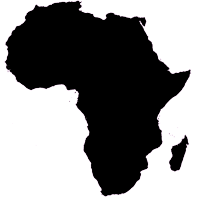 The Institute for International Education’s new Open Doors report finds that in the 2018-19 academic year, there were 40,290 students from sub-Saharan Africa enrolled at colleges and universities in the United States. They made up 3.7 percent of the 1,095,299 foreign students at U.S. colleges and universities that year. The number of students from sub-Saharan Africa was up 2.1 percent from the prior year. Overall, international student enrollment was up just 0.05 percent
The Institute for International Education’s new Open Doors report finds that in the 2018-19 academic year, there were 40,290 students from sub-Saharan Africa enrolled at colleges and universities in the United States. They made up 3.7 percent of the 1,095,299 foreign students at U.S. colleges and universities that year. The number of students from sub-Saharan Africa was up 2.1 percent from the prior year. Overall, international student enrollment was up just 0.05 percent
Among sub-Saharan African nations, Nigeria in 2018-19 sent the most students to American colleges and universities. That year, there were 13,423 Nigerians studying here, up by nearly 5.5 percent from the previous year. In the 2013-14 academic year, there were just 7,921 Nigerian students at U.S. colleges and universities. Thus, over the past five years, there has been nearly a 70 percent increase in Nigerian students at American universities. The number of students from Nigeria this year is more than 3.6 times the number of students from any other sub-Saharan African nation.
In 2018-19, Ghana ranked second, sending 3,661 students to the United States. The number of students from Ghana is up nearly 14 percent from the previous year. Kenya ranked third this year after being in second place the previous year. The 3,451 students from Kenya was an increase of 3.9 percent from the previous year.
Ethiopia, Rwanda, Cameroon, the Democratic Republic of the Congo, Angola, South Africa, Zimbabwe, and Cote d’Ivoire each had more than 1,000 students studying in the United States. Tanzania and Uganda both sent more than 800 students to study at U.S. colleges and universities. Senegal and Burkina Faso each sent more than 500 students to study abroad in the United States.
All told, 50 nations from sub-Saharan Africa had college students studying in the U.S. during the 2018-19 academic year.
Undoubtedly, some of these students from sub-Saharan Africa nations such as Namibia, South Africa, and Zimbabwe are White, but there is no data to report on the racial or ethnic makeup of this group of African students at U.S. colleges and universities.

